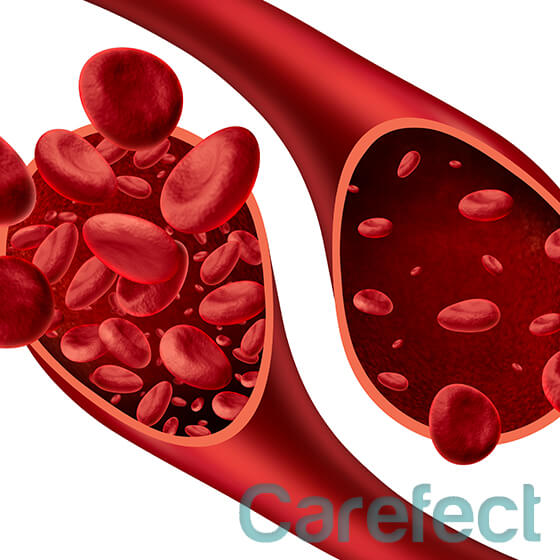Anemia is a medical condition in which the number of red blood cells and the amount of hemoglobin in those cells are lower than they should be. Anemia can be caused by blood loss, iron deficiency, vitamin B12 deficiency, or a chronic disease. Anemia can be a serious health condition as seniors are especially sensitive to suffering from anemia and it can lead to physically devastating results. Anemic seniors are more likely to experience cognitive decline, physical decline, and even be hospitalized due to the condition. Due to the severity of which anemia can contribute to negative health outcomes, it is important that seniors and their caregivers are made aware of what causes anemia, how the symptoms may manifest, and what treatment options are there.
Causes of Anemia
People can experience the onset of anemia acutely or chronically. Acute anemia can manifest suddenly and with severity, in comparison to chronic anemia, which develops slowly over a long period of time. This difference in onset can be reflective of what the cause may be, but with anemia, there is not always a clear answer. The two most common causes of anemia are chronic diseases and iron deficiency. Chronic diseases that are associated with the onset of anemia are cancer, hypothyroidism, inflammation of the stomach or intestines, and liver or kidney disease. Taking certain medications can also lead to the development of anemia. Taking multiple prescriptions can have a synergistic effect and can cause side effects that have a greater impact on the body. This is especially true of seniors who were more likely to take more than one prescription. Ensure that you are taking medications under the direct advisement of a doctor who will know what the synergistic effect will be from taking those medications together.
Symptoms of Anemia
As anemia affects the quality and amount of your blood cells, signs of anemia can manifest in feeling more fatigued. At times, the symptoms of anemia can also coincide with the feeling of old age however if your elderly loved one is feeling tired, weak, dizzy, or suffering from mood swings, pale skin, and shortness of breath, that is an indication that they need to be evaluated by a doctor. Including your doctor into conversations regarding the symptoms of anemia can be important in evaluating what needs to change in your medication or healthcare routine. After receiving guidance from your family doctor it may benefit seniors to consider how their symptoms are affecting their life and what needs to be done in order to increase their quality of life. This includes a variety of treatments depending on their specific circumstances.
Treatments for Anemia
It is important to consider that anemia is more than just a condition, as it is often a symptom of another underlying issue. Therefore, when treating anemia, it is best to first identify the underlying condition and treat that. For example, if anemia is caused by the mixing of prescriptions, then reformulating the prescriptions is key to managing the anemia. Another aspect of anemia that may help is diet, lifestyle, and vitamin intake. While it is preferential that people go to their doctor first in order to navigate their specific anemic circumstances, if they want to try to make some healthy lifestyle choices outside of that it begins with their diet. Vitamin B12 is important and foods that contain it are various meats, including beef, poultry, fish, some crustaceans, milk, cheese, and eggs. Folate deficiencies can also be improved by intaking more fresh fruits, leafy vegetables, cruciferous vegetables, dairy products, and whole grains. Both vitamin B12 and folate can also be prescribed as a supplement which can reduce anemic symptoms if the anemia relates to a vitamin B12 or folate deficiency. It is important to know what forms of anemia you have, as diagnosed by a doctor, as some forms of anemia are less common and require medical intervention, including blood transfusions, steroids or surgery.
Anemia is relatively common, as it affects about 10% of the senior population in North America. However, just because it is, does not mean it cannot be serious. Some forms of anemia may be assisted with vitamin supplements and a change in diet while others may require medical surgery in order to repair internal damage. It is important to go to a doctor first in order to be diagnosed with the correct form of anemia so they may prescribe an effective treatment plan.
If you enjoyed this article, we also recommend these related posts in our Home Care Services blog:

